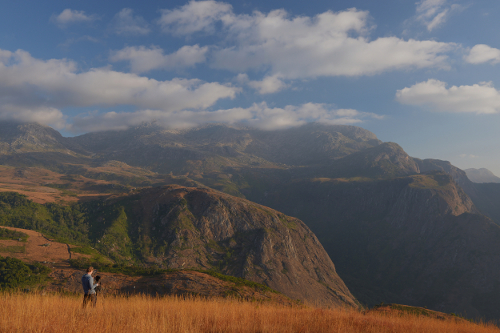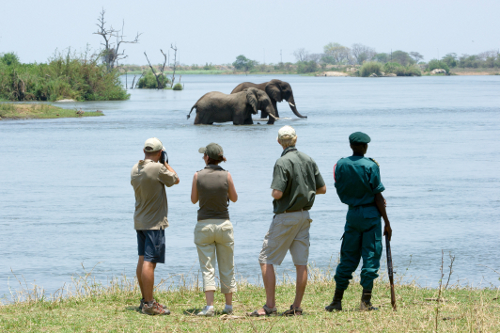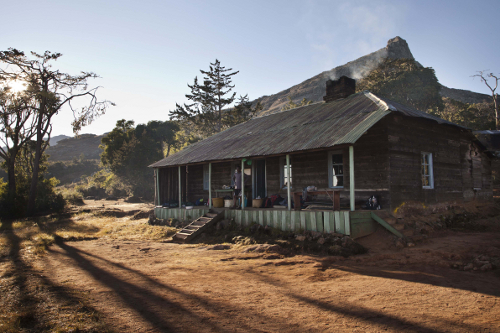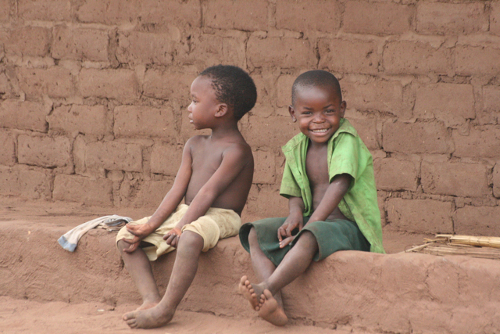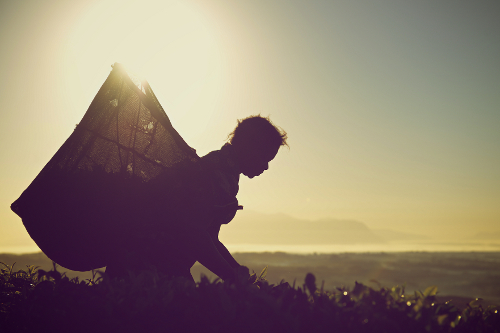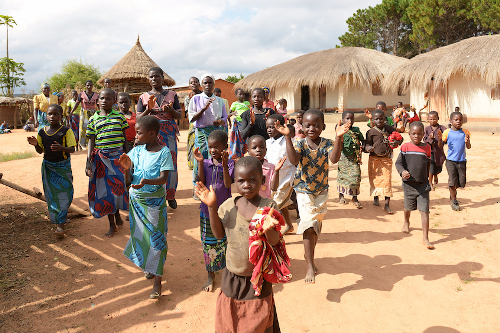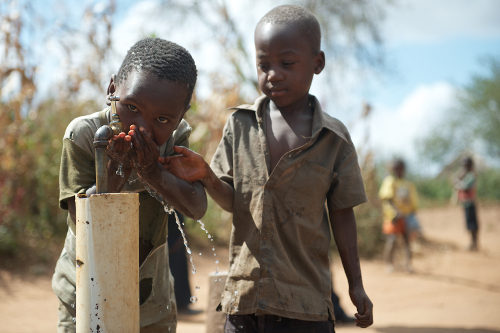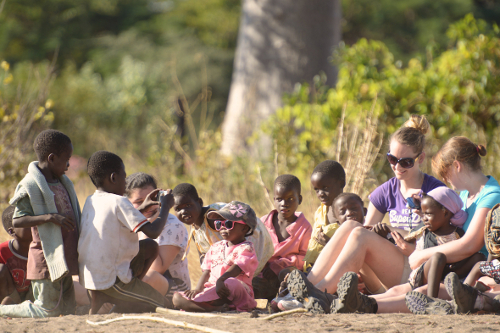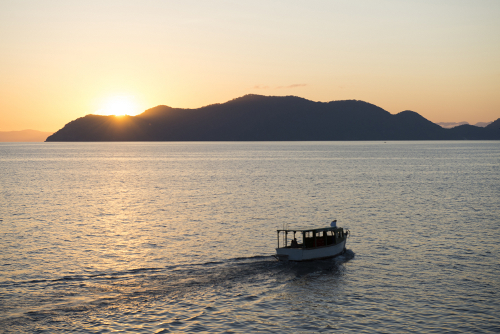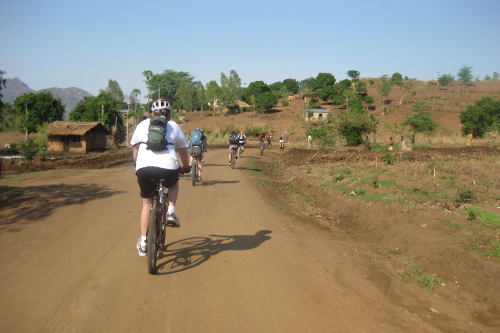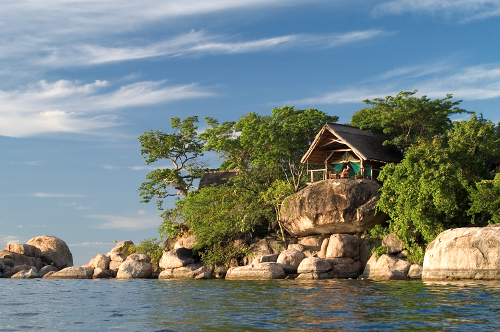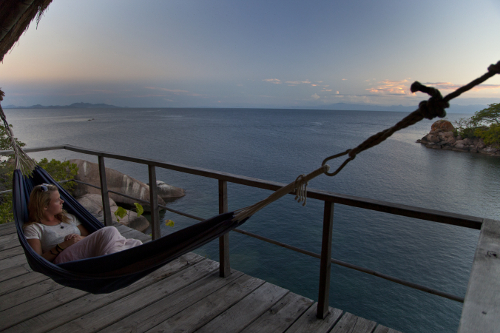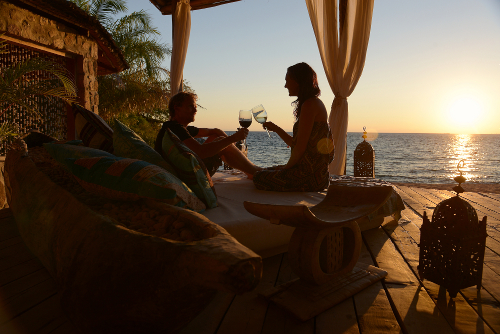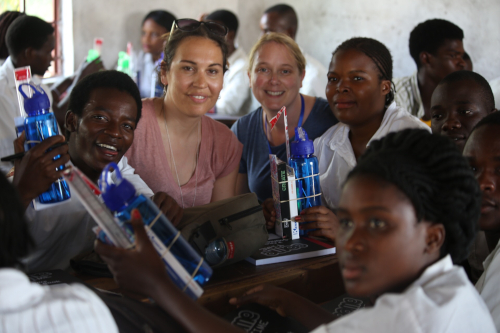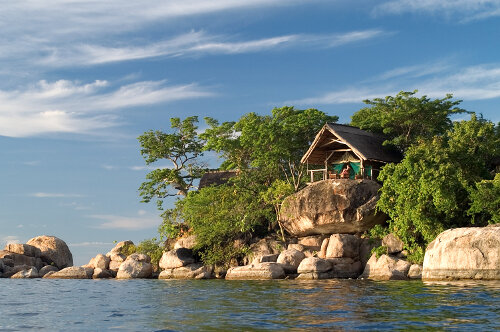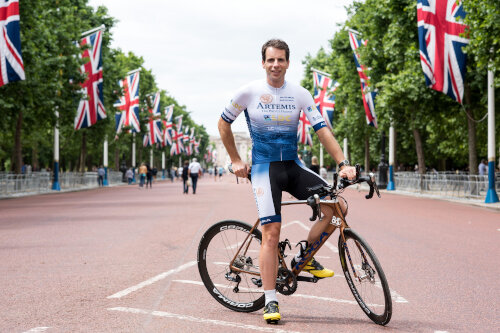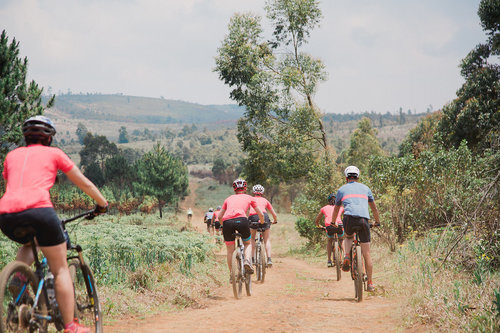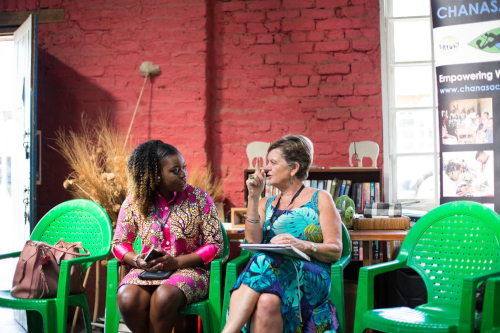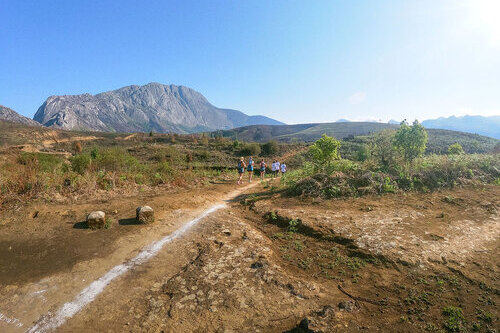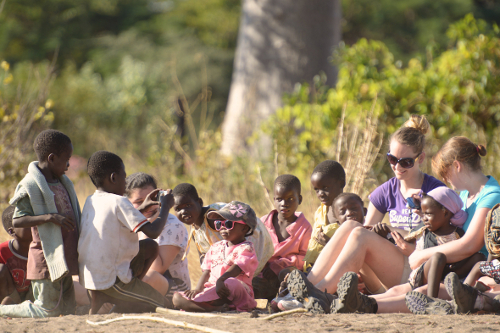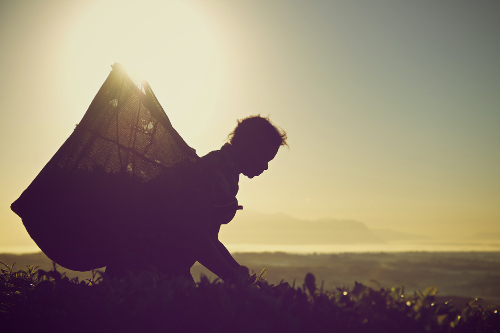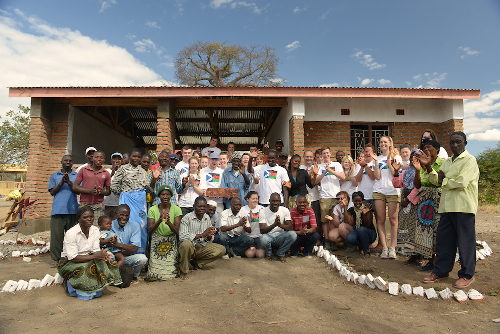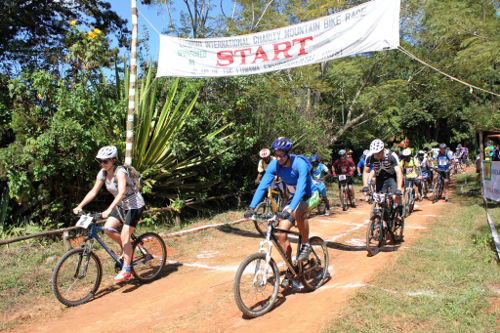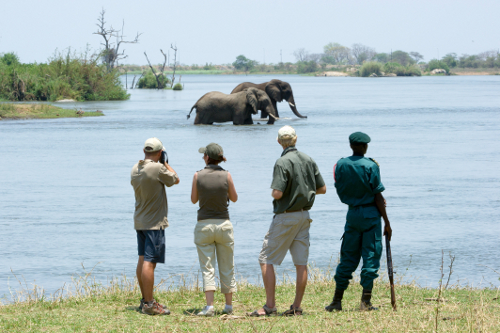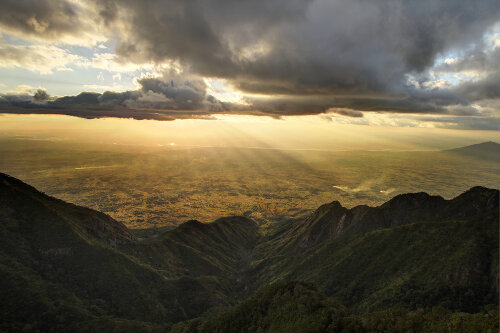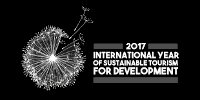Gain incredible insight into key global issues facing rural communities in Africa through immersive learning opportunities & challenges
The Responsible Safari Company, set up by Dom and Kate Webb, is committed to sustainable development through social enterprise, reducing the dependence on the aid industry and driving tourism-generated income to rural communities through partnership.
Known as 'The Warm Heart of Africa', Malawi’s nickname doesn’t just come from the country’s landlocked position east of Zambia, north and west of Mozambique, and south of Tanzania, with whose citizens the people feel a kinship, but also the welcoming hosts’ friendliness and happiness, rated top in Africa!
In part for this reason, coupled with unique developmental challenges as one of the poorest countries on earth (171 out of 188 countries and territories on the Human Development Index), Dom and Kate set up the Responsible Safari Company in 2008, and Orbis Expeditions, the UK-based branch, 5 years on.
They work in partnership with inspiring community initiatives offering immersive learning opportunities for individuals, students & businesses to gain an insight into the key global challenges facing rural communities in Africa.
Workshops take place in an environment which is hands-on and participatory, with practical subject matter including: Healthcare, Education, Environment, Climate Change, Water, Fair Trade, Sustainable Agriculture and Local Economic Development.
Be an Earth Changer:
Visit Malawi and immerse yourself in Global Sustainable Development and Citizenship
An exceptional opportunity to gain an insight into key world challenges in ‘the warm heart of Africa’ through Global Sustainable Development programmes.
A stay of a minimum of 10 days is recommended to really benefit from what Malawi has to offer. Jump to: Trip Options & Accreditations.
Earth Changers Plus: Book through us & you’ll receive a free briefing on Malawi and sustainability when you arrive (details tour dependent).
The Place
Malawi is a diverse country with a huge variety of ecosystems, varying from Mount Mulanje, among the highest mountains in Africa, and the high Nyika plateau in the north to the Shire River valley in the south, an extension of the Great Rift Valley.
20% of the country’s landmass consisting of water: The country is separated from Tanzania and Mozambique by freshwater Lake Malawi, sometimes called the Calendar Lake for its 365 miles length and 52 miles width, which covers about one third of Malawi’s area.
It has one of the richest lake fish faunas in the world, home to some 200 mammal, 650 bird, 30+ mollusc, and 5,500+ plant species, hundreds found nowhere else in the world.
Endemic animal life in Malawi includes elephants, hippos, big cats, monkeys, lemurs and bats and a great diversity of birds including birds of prey, parrots, waterfowl, large waders and songbirds. There’s tropical and subtropical grasslands, savannas, shrublands and woodlands.
The climate is hot in the low-lying areas in the south and temperate in the northern highlands. Between November and April the temperature is warm with equatorial rains and thunderstorms, with the storms reaching their peak severity in late March. May to September sees almost no rainfall just wet mists descending from the highlands into the plateaus.
The capital, Lilongwe, is roughly in the centre of the country. Its second largest city and major commercial centre is Blantyre, named after the birthplace in Scotland of the first European to discover Lake Malawi in 1959, the English explorer Livingston.
The late 19th century saw European involvement and treaties negotiated with indigenous rulers, formally declaring the country a British protectorate called Nyasaland. A desire for independence after the 2nd World War saw federation with Northern and Southern Rhodesia (now Zambia and Zimbabwe), followed by self-governance and independence in 1964 under its new name, Malawi, declared a republic in 1966. Under the new regime, the country embarked on a programme of economic development and political neutrality in international affairs. However, the one-party government became repressive, leading to sluggish economy, foreign aid debt and Mozambican refugees, prompting discontent and human rights criticisms, resulting in a new constitution and democratically-elected pro-Western government in 1994.
Malawi is amongst the world's least-developed and lowest per capita income countries in the world (just $314.50 annual average - UN, 2013), heavily dependent on agriculture (90% GDP), its largely rural (85%) population, and outside aid to meet development needs for the economy, education, healthcare, environmental protection and becoming financially independent.
“More than 80% of Malawians are smallholder farmers with access to an average 0.23 ha of arable land, compared with the sub-Saharan African average of 0.40 ha. ”
It is into this environment that Dom and Kate Webb bring their combined skills of hospitality, business management, education and international development, focusing on the positive impacts of tourism to deliver much-needed support to community initiatives. By choosing to work in partnership with existing community organisations supporting entrepreneurial Malawians, sustainable community development can take place.
Malawi offers ideal ‘outside the classroom’ learning experiences, providing both a glimpse of behind the scenes real Africa and an all-encompassing overview of development: On the ground 'agents of change' local entrepreneurs’ inspiring examples of sustainable development help dissipate myths and promote transformational learning, combined with the diversity of landscape offering a hive for environmental research, and rural communities’ rich cultural heritage.
The People
In 1999, the estimated population was ten million, with 45 percent of the population under age 14, and 3 percent over age 65. The population is forecast to grow to over 45 million people by 2050, nearly tripling the (UN) estimated 16.7 million in 2014.
Among the major diverse ethnic groups and cultures are Chichewa, Nyanja, Tumbuko, Yao, Lomwe, Sena, Tonga, Ngoni, Ngonde, Asians, and Europeans. The most widely spoken language - 60% of the population - is Chichewa, which originated among the Bantu tribes of South Africa, 30% speak Arabic, although English is taught in schools, is widely spoken and is the language of government, industry, and commerce.
Malawi is a majority Christian country (82%), with a significant Muslim minority (14%), although the exact figures are disputed and data limited.
While the British influence still can be seen in driving on the left side of the road, roundabouts, speed bumps, and school uniforms, Malawi’s poverty and largely small holder farming agricultural economy - 90% of export earnings, 45% GDP, supporting 90% of the population - is evident.
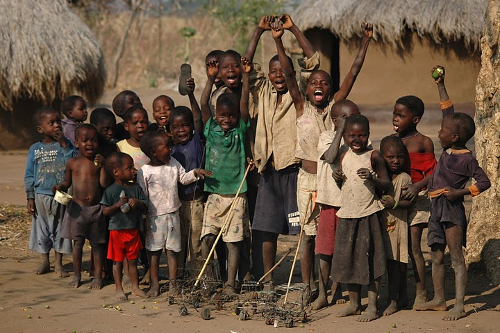
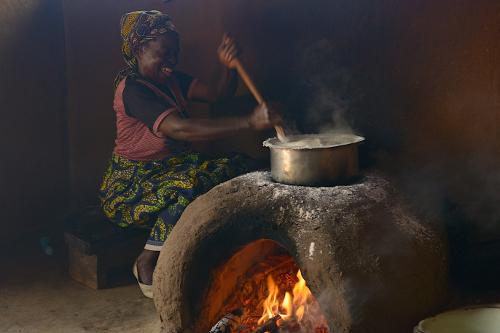
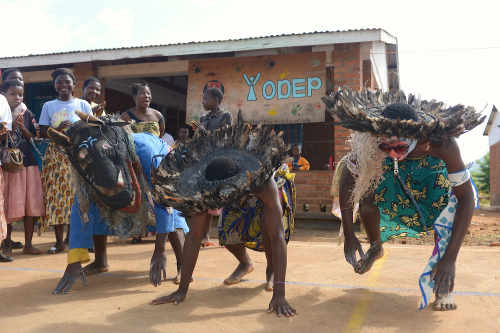

Traditionally, homes are constructed of sticks and mud with either a thatched roof or a roof of corrugated iron held down by stones, with few decorations and cow dung often used to create the floor of the house.
Cooking is done over fire in a separate building with a smoke hole in the roof and bathing done outside, often within a circular thatched shield with an open roof. Water is carried, often over great distances, for cooking and bathing.
Even in urban areas, each home generally has a small plot of corn: Nsima is eaten twice a day, usually at lunch and dinner, a standard dish of boiled cornmeal, sometimes supplemented with chicken, goat or pork; Fruits are plentiful, including mangoes, melons, oranges, bananas, and pineapples.
Land is treated as public domain. A person may settle on a piece of ground, build and grow crops as long as neighbours approve, and later register the plot with the government to gain legal title, thus land distribution is unequal and more than 40% of smallholder households cultivate very small plots.
Export trade is dominated by tobacco, tea, cotton, coffee and sugar, with little import trade. However, foreign expat managers are being replaced by Malawians and tourism is beginning to build, with plans to restore roads and build resorts.
Tourism supports local craft heritage too: The indigenous ethnic groups of Malawi have a rich tradition of basketry and mask carving, some used in traditional ceremonies still performed by native peoples. Wood carving and oil painting are also popular in more urban centres, with many of the items produced being sold to tourists.
Men dress in a Western style, shirts and trousers, women often wear traditional costumes consisting of two or three chitenjes - coloured fabric used as a skirt, a headdress, and a sarong-like wrap to hold a small infant on the woman's back. The red, blue or green colour of dress represents the north, central, and southern regions, respectively. Shoes are expensive and often the local people are barefoot even in the cities.
While a patriarchal society, the greater respect shown for women is one of the reasons founder of RSC Kate Webb cites as supporting the opportunity to set up a business in Malawi.
However, historically social issues abound: Government corruption, violence, human trafficking and child labour have been noted, low but increasing life expectancy (64 years, World Bank, 2018), high infant mortality, and a high prevalence of HIV/AIDS (9% of the population), which has led to devastating effects, such as adding an additional 500,000 orphans who require care-givers. Nearly one million Orphans and Vulnerable Children and Vulnerable Children have lost one or both parents to AIDS (2016).
Water and sanitation is a challenge to Malawi's people
- 2 million don't have access to safe water
- 10 million don't have access to adequate sanitation
- Over 3,000 children die every year from diarrhoea caused by unsafe water and poor sanitation
Health and well-being suffers…
- Only half of women in developing regions receive the recommended amount of healthcare they need.
- Children born into poverty are almost twice as likely to die before the age of five as those from wealthier families. Malnutrition causes 23% of child deaths.
- At the end of 2013, there were an estimated 35 million people living with HIV.
…intensifying environmental and climate threats:
- Malawi deforestation rates at 2.8% annually are the highest in southern Africa, exacerbating food and water insecurity.
Just 9% of the country is connected to mains electricity - many hotels rely on back-up generators and/or solar power.
The Purpose
The RSC's Manifesto purpose is that:
"tourism-generated income helps build sustainable solutions in local communities".
- They believe in the potential of Malawi’s people and that empowering them via tourism offers a chance to develop out of the poverty cycle.
- They believe that when promoting a fragile destination you need to ensure the benefits reach the local communities.
- They are committed to building the local economy in Malawi. By employing local people and creating sustainable growth through social enterprise, they aim to reduce the dependence on the aid industry.
- They believe in balance. The tailored, educational and culturally diverse experiences awaken minds and inspire future generations.
- They believe that everyone should take the chance to #bepartofsomething.
Commitment to sustainable travel is demonstrated through a ‘Payment for Ecosystem Services’ Scheme: 1.5% of your holiday cost goes to local Malawian projects for the conservation, protection and enhancement of the ecosystems and rich culture of rural communities you benefit from during your stay in Malawi.
This has so far generated in excess of $31,000 to conservation, $88,000 facilitated community donations through more than 10,000 travellers, with more than 23,000 beneficiaries.
Any room in your luggage? Let RSC know and they will give you a list of resources much needed by local community initiatives which can be delivered personally or via the organisation.
Development Programmes
Experiential learning and shared experiences promote new perspectives, widened horizons and transformational learning, aligned with Sustainable Development Goal 8: Promote inclusive and sustainable economic growth, employment and decent work for all.
Programmes may be taken as a group, or as a scheduled departure for independent travellers wishing to join a group. Please enquire for details.
Global Development Workshops
Provide practical examples of global development challenges offering maximum learning potential and hands-on experience to build awareness of the challenges faced by developing countries, working in partnership with 3 main communities as income generating activities. More details below.
Global Citizenship Programme
Designed to help educate on vital issues affecting the world today, and discover what the UN Global Goals are really about. An expedition across Southern Malawi taking part in practical workshops in rural village settings, giving the skills and confidence to teach others about global sustainability issues. Options
Adventure Charity Challenges
Fundraise for a charity, link with an existing community partnership or challenge yourself with a hike, bike or on the Lake, visit a linked project and have additional days for relaxation and safari options. The country’s diversity of landscape offers multi-disciplinary challenge itineraries, as well as rural communities rich in cultural heritage. Options
- The Malawi Triathlon: Cycling in the Tea Fields, Hiking Mount Mulanje, Kayaking Lake Malawi. A 9 day challenge taking on the best of Malawi.
- Community Cycle Challenge: 3-5 day rural cycling.
- Mount Mulanje Hike: 2-7 day hiking.
- Community Development: 7-14 day community immersion. Homestay and village development.
- Malawi Marathon: 3-7 Day Running/Walking.
- Lake Malawi Kayak or Sailing Expedition. Options
Trip Options
Many trips can be tailor-made to match group itinerary interests, objectives, budget and time frame, and are always accompanied by a local Malawian guide. The experienced qualified guides have a wealth of inherent cultural knowledge as well as receiving ongoing training in guiding, conservation and environmental awareness to provide support and enhance immersive learning.
Groups may be schools, universities, clubs or societies, a collection of friends or family members, or businesses with an interest in immersive learning experiences on global sustainable development and citizenship. Please enquire for details.
NB. RSC is committed to ensuring the benefits of tourism reach local communities and therefore has set up a Payment for Ecosystem Services scheme which contributes 1.5% of all booking value to a community environmental project in Malawi.
Getting There:
Dependent on bespoke itinerary. Ethiopian Airlines, Kenya Airways & South African Airways provide flights from UK to Malawi via respective hubs; Addis Ababa, Nairobi & Johannesburg.
For group bookings of more than 9, flights usually can’t be booked online - our partner can work upon confirmation of trip to secure the best option and flights and organise local transport logistics.
Women's Partnership Challenge to Malawi | 24 April-4 May ‘24 | Sept-Oct (date tbc, enquire) £3250*pp 11 d/10nts
*10% of trip cost goes to the Orbis Foundation Micro Finance Fund for Malawian entrepreneurs.
Learn about yourself and others, to empower and be empowered, to inspire and be inspired…
This expedition is designed for women who want to travel intelligently. They itch to really have purpose in their adventures and see partnership as a hugely inspiring and exciting journey to be part of.
This Women’s Partnership Challenge combines shared purpose, with the chance to head behind the scenes with collaborative business workshops, off the beaten track adventure, the very best slice of culture and the chance to relax, rejuvenate and experience some of Malawi’s best spots.
It is designed for women that rarely have time to think about themselves, women who question the why before travelling to emerging destinations and women who have fire in their belly to be part of an incredible sharing journey. Sharing with your team, sharing with the women and girls in Malawi and making time to learn, be inspired and empowered.
+ More Details & Itinerary - click here
Join for the challenge of hiking Mount Mulanje, the beauty of the fairtrade tea estates, the vitality of wildlife safari, a chance to contribute to genuine sustainable development through partnership working with some of Malawi’s most inspirational businesswomen, helping mentor final year students, and relaxation at a stunning eco island!
Day 1: Arrive Blantyre. Tea Estates. Sundowner on Thyolo Mountain
Day 2: Entrepreneurs Partnerships Workshops
Day 3: Entrepreneurs Partnerships Workshops. Afternoon Tea Tasting.
Day 4: Mulanje Mountain Hike. Hut 1. Climb
Day 5: Mulanje Mountain Hike. Hut 2. Plateau Day.
Day 6: Mulanje Mountain Hike. Descent. Wildlife Safari.
Day 7: Wildlife Safari. Transfer Lake Malawi.
Day 8: Mentoring School Day.
Day 9: Lake Malawi Eco-Island. Mumbo Island.
Day 10: Lake Malawi Eco-Island. Mumbo Island.
Day 11: Depart for International Flight.
Optional extra: Additional nights Mumbo Island possible.
Your journey will start weeks before departure with planning and group video calls with your team, and continue well after you have returned home, with enduring relationships often leading to future business links and markets after the expedition.
Includes: All meals, accommodation (shared twins), bespoke activities and skill sharing, and transport in Malawi.
Excludes: Return international flights (est. £650-£950), drinks, visas, medical requirements, tips and items of a personal nature (£10-20/day).
Orbis Cycle Challenge - with Mark Beaumont | (Dates tbc) | £2500 pp 7 days
Join adventurer, and British Cycling inspiration, Mark Beaumont (BEM) on this inaugural 7 day Cycling Challenge adventure through Southern Malawi. Taking in some of the country’s most stunning and diverse landscapes, including the tea estates, trails of Mulanje Mountain, Zomba Plateau, you’ll finish on the shores of Lake Malawi. Time is included to visit local communities, take in some of Malawi’s best highlights and spend time with local youth groups passionate about sport.
The purpose is raise awareness and £10,000 funds to promote forest conservation, education and community action to combat deforestation and degradation of Zomba Forest Reserve. By experiencing Zomba, you will understand all the more how vital it is to protect this stunning region of Africa.
+ More Details & Itinerary - click here
The Orbis Cycle Challenge is not just about taking on an unforgettable cycle challenge it is also about witnessing the beauty of Malawi and interacting with Malawi’s people. In between your event days you will visit local communities, take part in local sports and learn more about this years purpose; sport and education. It is not a race! You'll join a group of 20-30 people all who have applied and been selected for their past sporting experience, sense of adventure, humility and team spirit.
Included in your cost are community events, an overnight wildlife safari and an afternoon spent on the shores of Lake Malawi. If you want to stay on to discover more, you can arrange extra days travel across this beautiful region of Africa.
Day 1: Arrive & acclimatise.
Day 2: 60km (tarmac/dirt) - Tea Estates
Day 3: 120km (tarmac/dirt) - Mulanje Mountain Foothills
Day 4: 110 km - Zomba Community & Challenge (tarmac/dirt)
Day 5: 70 km - Liwonde (tarmac/dirt) & Wildlife Safari
Day 6: 84 km - Lake Malawi Sprint (tarmac/dirt)
Day 7: 51km - Cape Maclear, Lake Malawi (tarmac/dirt)
Day 8: Depart / onward travel
Includes: All in-country costs
Excludes: Flights (approx £600-£900), visa, drinks
The Cycling
Day 2/3 Tea Estates and Mulanje Mountain: Beginning in the stunning tea estates of Southern Malawi, your first two days will be cycling on a mix of compact dirt and tarmac through the rolling tea and coffee plantations and around the foothills of Mulanje Mountain. Expect beautiful views of the mountain and ever decreasing traffic as you head off the beaten track through rural villages nestled into the mountain side. The route is generally quite flat with a few steep ascents to your lodge accommodation in the foothills of Mulanje Mountain.
Day 4 The Zomba Ascent Challenge: The first half is a good tarmac road heading away from Mulanje Mountain and out towards Zomba Plateau. Arrive in Zomba Town and head off road for a visit to a rural community - expect a lot of the village to join you as you bike past, lots of dust, lots of singing too! After a visit to a youth education centre you will be back in the saddle and ready to take on The Zomba Plateau Challenge- a 9km gruelling 1km ascent to your hotel which sits up high near the plateau summit.
Day 5/6/7 Liwonde and Lake Malawi: A beautiful ride starts with good tarmac roads leading their way down to the Shire River and the plains of Liwonde National Park. Teeming with wildlife this will be your treat and rest day before getting back in the saddle for your final ride to the shores of Lake Malawi. The roads become busier as cars are replaced by people and large stretches of open road to get into a good pace and soak up the sights, sounds and smells of Lake Malawi life. The final stretch of the event takes you to Cape Maclear and could be ideal for a sprint challenge to finish the week off!
Social Impact Journey, Malawi | Dates tbc | £1750 pp 7 days
*10% of the trip cost goes to Orbis Foundation Micro Finance Fund for Malawian entrepreneurs.
Challenge your perceptions of Africa and join a team on this journey for those who want to head behind the scenes and learn more about impact from the community level up to established companies that are striving to build their local economy. This expedition gives back at every turn, supports village businesses, offers a chance to meet inspirational entrepreneurs, share skills and cultural exchange and still fit in some of Malawi’s visitor highlights and hidden gems.
+ More Details & Itinerary - click here
This is a get your hands dirty expedition designed to offer you a chance to use your skills, passions and interests to positively participate in sustainable development initiatives. Help empower Malawians, yourselves and each other, working with local entrepreneurs, youths, staying with a family, take a safari, and leave with a wealth of cultural learnings!
Day 1: Arrive Blantyre. Acclimatisation. Game Haven Lodge.
Days 2: Business Entrepreneurs Workshop. Skill Sharing
Day 3: Business Entrepreneurs Workshop. Skill Sharing
Day 4: Village Homestay. Rural Community near Zomba.
Day 5: Lake Malawi Secondary School. The Makokola Retreat
Day 6: Lake Malawi Secondary School. The Makokola Retreat
Day 7: Lake Malawi Retreat. Mgoza Lodge
Extended Travel can be organised.
Includes: All meals, accommodation (shared twins), bespoke activities and skill sharing, and transport during your time in Malawi.
Excludes: Return International Flights, visa on arrival (approx $75) personal travel insurance, drinks, tips & items of a personal nature. (£10-£20 per day)
Sport with a Purpose: The Orbis Trail Challenge | dates tbc | £2300pp
2022 Headline: Lauren Steadman, Tokyo Olympic Gold Medallist, Paralympian, World Champion.
Join a team of 20-30 athletes passionate about sport and pushing the boundaries of inclusive adventure travel. Following closely in Dame Kelly Holmes footsteps in previous years, this 7 day expedition to Malawi includes 3 half marathons: a Mulanje Mountain trail run, a Zomba Forest trail run, and a Lake Malawi trail run, plus a village 5km, combined with visiting communities and primary school sports coaching.
The purpose is raise awareness and £10,000 funds to support forest conservation and an organisation promoting education and community action to combat deferestaion and degradation of Zomba Forest Reserve. By running the trails at Zomba you will understand all the more how vital it is to protect this stunning region of Africa.
+ More Details & Itinerary - click here
Mid to high level of fitness required to take on the challenge days but team members passionate about disability and sport also welcome to apply.
Day 1: Arrive and Acclimatise
Day 2: City run with local running group, school visit.
Day 3: Mulanje Mountain Trail Run (25km)
Day 4: 5km Village Run, Afternoon Waterfall Visit
Day 5: Zomba Forest Trail Run (23km), Conservation Visit
Day 6: Wildlife Safari/Riverboat Safari, School Visit
Day 7: Lake Malawi Trail Run (23km), Kayaking/Snorkelling
Day 8: Depart or further travel
Why not stay on for a wildlife safari, Lake Malawi, Mount Mulanje hiking or visit Zambia?
Includes: All accommodation, food, activities, transport and porters during your time in Malawi.
Excludes: Return International Flights, visa on arrival ($75), personal travel insurance, drinks, tips & items of a personal nature. (£10-£20 per day)
Family Challenge Expedition to Malawi | October Half Term | Cost £1300pp / £1150 Children under 12* Based on 12 travelling.
Are you keen for your children to connect with the wider world and understand more about different cultures? Combining culture, physical challenge, wildlife and out of the box educational experiences, this is a chance to experience something life-changing and reconnect as a family. Include community visits, Mulanje Mountain hike challenge, wildlife safari, island hideaway and time spent at a Malawian School.
Malawi is ideal for a great value off the beaten track destination to widen your family horizons. It’s an adventure whilst its peaceful history and good transport make it easy and safe to get around.
+ More Details - click here
Malawi's raw culture and warm welcome smiles will enthral. It’s enormously rewarding and can impact the whole family in understanding global citizenship and what this means in today’s world, tying in with the UN Sustainable Development Goals to support educational value…
Day 1: Arrive and Acclimatise - Stay Fair Trade Tea Estates
Day 2: Recycled Paper Making and Fair Trade Tea Tasting - Spend the morning visiting a community initiatives that is using natural products like grasses, elephant dung and tea to make make recycled paper - a chance to get your hands dirty!
After lunch spend the afternoon visiting the estate factory and making a fresh batch of iced tea! (SDG#9 Industry / SDG#12 Responsible Production).
Day 3: Mulanje Mountain Hike Challenge - Rise early and head a couple of hours south towards the stunning Mulanje Mountain, South Central Africa’s highest mountain (learn about SDG#13 Climate Action).
Rising out of the surrounding tea estates the mountain is home to some beautiful trails, waterfalls, wildlife and the location of your family challenge. You will be accompanied by a full team of guides/porters and a group basic medic. The hike up is around 1,000m and should take between around 5 hrs. Accommodation will be in the very basic mountain hut, Lichenya Hut, sleeping bags on mattresses with supper cooked over the open fire. For those wanting just a day hike or feeling that the challenge might be a bit too much then we can arrange a day hike to the waterfalls for lunch and back to base camp for the overnight stay
Day 4: Descent and Wildlife Safari - Wake to sunrise! Your descent is steep in places but good walking boots and poles really help. Head to Liwonde National Park for 24 hours on safari. The park now boasts lions, large herds of elephants, plains game and plenty of crocodiles too! A great day for learning about SDG#15 Life on Land and SDG#14 Life Below Water!
Day 5: Lake Malawi, Domwe Island - Rise early to the sounds of the wildlife around your chalet. Head out on an early morning game drive before a river boat safari, the best way to see herds of elephant as they come to the river for their morning drink! Transfer 2 hrs to Cape Maclear and kayak (1hr) or take the boat (15mins) to the Robinson Crusoe Island of Domwe. A mix of chalets and camping is available with a very rustic back to basics feel. Light a fire on the beach, eat freshly caught fish and soak up the milky way!
Day 6: Lake Malawi, Cape Maclear School Visit - Spend the afternoon visiting a lakeside school where you can learn about youth and rural literacy (SDG#4 Quality Education /. Join the students and experience school life in rural Malawi and see what your amazing fundraising has gone towards before a final night spent on the shores of Lake Malawi.
Day 7: Depart for International Airport 4 hr transfer to Blantyre or Lilongwe for your international ight. Or extended stay options available.
As a group you can decide if you wish to raise money/awareness for a particular topic and we'll ensure every penny you raise is given sustainably, eg. Healthcare- mosquito nets. Education- desks and chars for a local school. Conservation- reforestation project.
Overall, your tourism can help SDG#10 Equality and support (SDG #16) peaceful sustainable development through your tourism's partnerships for the goals, SDG#17.
Inclusions: All accommodation, meals, minibus, driver/guide, fuel, activities, project visits.
Exclusions: Return international Flights, personal travel insurance, Visas, drinks (alcohol), tips & items of a personal nature.
Global Development Workshops: Tailor-made, from $1,895 based on 10 participants, 7-20 days.
Designed to follow a model of sustainable development to educate and engage on vital issues affecting the world today. Choose an all encompassing overview of development or an in-depth focus on one or two areas, including workshops on Wildlife, Environmental Conservation, Healthcare, Education, Business and Fair Trade. Pre-travel workshops (available online) can introduce and embed an understanding of the UN Global Goals for max benefit.
+ More Details - click here
Includes: Return International Flights, All Accommodation, All Transport (inc. fuel & driver), RSC Guide, All Project set up and support, All Activities (where applicable), Air Evacuation cover, All local Taxes and Bank Fees.
Excludes: Meals and activities not on itinerary, Personal Travel Insurance, Visas, Bar Drinks, Tips & items of a personal nature.
Global Development Workshops - bespoke itinerary options:
Workshops are hands-on and participatory. Experiential learning and shared experiences promote a fresh attitude and new perspective, widen horizons and promotes transformational learning, leading to improved skills such as communication, adaptability and leadership. Ideal for groups interested in sustainable development.
Health & Well Being (Sustainable Development Goal #3) Healthcare: Learn about the work of a local NGO, Malaria, Bilharzia and Malnutrition and create arts with a community volunteer, to raise awareness of a key rural health issue. Village Home-based care: learn about village healthcare provision, and work alongside the team visiting and supporting families. HIV: A look at how Malawi is responding on a local village level in healthcare and education. Malaria: Learn about the Malawi Liverpool Wellcome Trust malaria prevention team’s work.
Environment: Learn about SDG #15 Life on Land, SDG #14 Life Under Water and SDG #13 Climate Action. Land Use: On Mulanje Mountain, hike and learn about the flora, fauna and effects of deforestation, irrigation systems, soil erosion, agriculture, water, conservation and climate change. Natural waterfalls nearby provide a refreshing swim. Forest: In Malawi’s last remaining rainforest, join a local Community Based Organisation on sustainable use of resources, conservation, natural spring water supply and patrols. Permaculture: Learn about sustainable crops, permaculture, nutrition, small holder land use and natural remedies at a social enterprise in Blantyre. At Lake Malawi: A workshop with a NGO learning about sustainable fishing, fuel efficient stoves, deforestation and tree planting initiatives.
Social Entrepreneurship & Sustainable Practices: Learn about SDG #12 Responsible Consumption & Production, SDG #9 Industry, innovation and infrastructure, SDG #8 Decent Work and Economic Growth and SDG #17 Partnerships for the Goals. Fair Trade: Visit Malawi's oldest and most beautiful tea estate in Thyolo, learn about one of Malawi’s key exports, its sustainable practices & fair trade & take part in tea tasting. Sugar Production: Visit Malawi’s leading cane sugar producer to see the process from plant to packaging and the fair trade methods used to ensure production is sustainable. Sugar Cane Cooperative: How a small fair trade cooperative of subsistence farmers works under a centralised irrigation system and agronomy. Small Holders: Visit a family using their land to grow coffee & learn about Local Economic Development, market access for small holder farmers, picking, grinding & packaging. Local economic development: Learn about income generation and get your hands dirty with community-based organisations’ initiatives like paper-making (from elephant dung and banana leaf!), tailoring and chicken rearing.
Water and Sanitation: Learn about SDG #6 and SDG #11 Sustainable Cities & Communities. Sugar Production: Learn about irrigation systems, soil erosion, conservation, and agricultural land use and water. Visit Kapichira Falls, Majete Wildlife Reserve: A river fed hydro-electric dam. Take a river boat safari to witness the importance of The Shire River to the reserves flora & fauna. City Waste Management: Meet an international charity working with the government to tackle water and sanitation and (for the strong stomached) take a toilet tour of Blantyre! Clean Water Initiatives: Learn about the challenges of accessing clean water on the shores of Lake Malawi and visit the village boreholes and pumps.
Education and Cultural Immersion: Learn about SDG #4 Quality Education and opportunities for all. Malawian culture, heritage and history: Mua Mission Cultural Museum is dedicated to preserving, recording and researching Chewa, Ngoni and Yao culture. Watch local traditional carvers create beautiful wooden pieces. Education: Learn about the challenges facing rural families for access to education and visit a village primary school and Early Child Learning Centre. Religion: Learn about the role it plays in the lives of young Malawians and attend a guide’s local church service. Women’s Empowerment: Take part in a village banking initiative which aims to empower women by offering small village financed loans, supporting SDGs #5 Gender, #10 Reducing Inequalities and #1 No Poverty. Dancing: Watch a local village dance group as they show you their traditional performances to celebrate the key events in their lives. Cultural Village Homestay: Experience life living within family and village setting, take part in daily activities and learn about some of the complexities mixed with simple joys of village life and implementation of the UN Sustainable Development Goals for sustainable communities.
Global Citizenship Programme: Tailor-made trips from: £1,895pp based on 10 people, 7-20 days.
Bespoke trips designed to help educate young people on vital issues affecting the world today, prior to taking their place as global citizens. Covers key developmental challenges facing rural communities, cultural identity and how this influences sustainable development, and supports the skills and confidence to teach others about global sustainability issues and embed global citizenship.
+ More Details - click here
Each trip is tailor made to ensure the itinerary suits your groups interests, objectives, budget and time frame. Local guides accompany every trip, enhancing students’ immersive learning experience, providing support throughout your time in Malawi and becoming an integral part of the group.
Outside The Classroom: Kayak to a Robinson Crusoe Island on Lake Malawi; Wildlife safari, rising at dawn to track protected black rhinos; Experience Malawian culture and cuisine on a homestay initiative; Build lifelong cross cultural connections with your local guide; Experiential learning widens horizons and promotes transformational learning, leading to improved skills such as communication, adaptability and leadership.
Includes: Return International Flights, all accommodation, all transport (inc. fuel & driver), local guides, all project set up and support, all activities (where applicable), air evacuation cover, all local taxes and bank fees. Excludes: Meals not included, activities not included, personal travel insurance, visas, bar drinks, tips & items of a personal nature.
Adventure & Charity Challenges: From £1,200pp on group size 10; can be smaller group.
Cycle, hike, run, kayak, sail and even play rugby and coach netball and football! Take on the best of Malawi, experiencing its communities and culture as you go. A real chance to see the diversity of Malawi and how passionate, and talented, its communities are.
Bespoke group trips: Enquire to discuss.
The Connect Retreat, Malawi | Groups | £ On request
Do you feel like the world is passing you by?
You're busy, productive and successful, but…
underwhelmed yet overwhelmed by the average 121 e-mails and 63.5 additional notifications a day?
Challenge your perceptions of travel with small group on an adventure of the mind, body and soul set against the magical backdrop of the Warm Heart of Africa, Malawi. Corporates or other groups, get in touch!
Study Trips, Malawi | Sample | £bespoke pp - enquire to discuss
Malawi is located at the bottom of the Great Rift Valley and boasts some of Africa’s most diverse landscape, taking in mountains, plateaus, rainforests, coast and magnificent Lake Malawi. Off the beaten track experiences including time with local communities and schools gives an overview of the human and physical geography in an environment highly vulnerable to climate change and shifting global economic governance.
+ More Details & Itinerary - click here
This behind the scenes adventure is a chance to see a different side to Africa: A chance to combine the highlights of wildlife and scenery with cultural exchange, skills sharing and off the beaten track experiences.
Home to the majestic Mulanje Mountain and Zomba Plateau, as well as small wildlife corridors, the physical geography and growing pressure of overpopulation and degraded land-use can clearly be seen and starkly highlights the extreme poverty levels in the country. Through days spent within a rural village setting, experience first-hand some of the challenges experienced by local Malawians seeing how subsistence farming in a changing climate affects communities basic needs provision.
Your local Malawian guide will host your group as you journey from southern Malawi, and the rolling tea estates, to the peaks of Mulanje Mountain, shores of Lake Malawi and end at Malawi’s last remaining rain forest deep in the heart of rural central Malawi.
At every turn you will see ingenuity and entrepreneurship and a real determination to survive and adapt in this evolving environment.
Visit schools run by solar power, water systems, plantations and forests, paper recycling project, markets and tea estates, homestays and communities starting their own banking services and village gardens using permaculture to protect them from extreme weather.
Includes: All meals, accommodation, bespoke activities and skill sharing, and transport during your time in Malawi.
Excludes: Return International Flights, visa upon entry (approx $75), personal travel insurance, drinks, tips & items of a personal nature. (£10-20/day)
RSC Terms & Conditions:
If for some unfortunate reason any cancellations need to be made, the following scale of charges may apply:
61+ days: 20% deposit; 60-42 days: 30% of trip cost; 41-28 days: 60% of trip cost; 27-7 days: 90% of trip cost;
7 days: 100% of trip cost.
RSC holds comprehensive International Public Liability cover in both Africa & UK; International Passenger Liability on all seat belted vehicles; Comprehensive Air Evacuation cover through Global Rescue; and is in the process of becoming ABTA registered and fully bonded in the UK. Risk Assessment Management Plans (RAMP) are updated annually and RSC also hold a professional Emergency Operating Manual compiled through an official Emergency Response organisation. RSC is based in Malawi and offers 24 hr support to all visiting groups.
